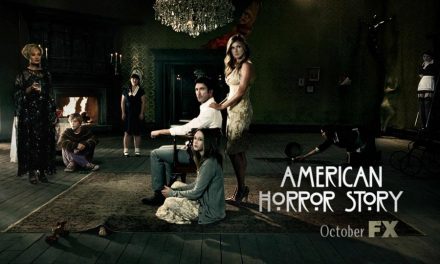Book title: Detective dramas 1960s-80s – surreal, supernatural, and gentleman and gentlewomen righter of wrongs.
Publisher: To be confirmed.
Date of publication: 2022.
Editor: Chris Hart, University of Chester, UK.
Rationale:
Three mainstream publishers have shown an interest in receiving a full proposal on Detective dramas 1960s-80s. To see if there is sufficient interest in this project I would like to invite short proposals to contribute to a potential book on this subject. What follows is a short overview of the main themes for consideration, but they are not exclusive. I am sure there are many more you would like to suggest.
British (and some American) action crime dramas of the 1960s, 70s and 80s featured some of the most interesting, eccentric and utterly unbelievable characters. If there was ever an era of classic television detective drama then the period between the mid-1960s to the early 1980s was it – or was it? The stories were bizarre, unbelievable, sets cheap, acting tongue in cheek and misogyny generally widespread.
While probably meaning nothing to contemporary media consumers, media students or even current media industry practitioners, programmes such as The Avengers, The Persuaders, Jason King, and Randall and Hopkirk were globally successful (international distribution – North America, Europe, South Africa, Australasia, and world-wide) and, therefore, deserve our attention – not only as instances of nostalgia but as examples of what creative, skillful and imaginative individuals can produce.
Some of the features of these programmes to think about include the following,
- Many leading characters had no obvious employment other than righting wrongs – such as Paul Temple, Danny Wilde and Lord Brett Sinclair, Mrs Peel and Steed, and none was married or had partners.
- Most belong to or work for special, sometimes secret governments departments, secret organisations and private agencies – all dedicated to maintaining world peace by regularly defeating the wicked, evil plans of social misfits who have a grudge against society.
- Assertive, confident and independent women with martial arts were common, Mrs Peel often practised Kung Fu on burly villains, other female characters drove powerful motorcycles, sports cars, and a Mini Moke. As in a Jane Austen novel, the women were very accomplished.
- Supernatural powers, though not common, did feature as the anchor on two programmes, one with the ability to see the ghost of a PI partner, the other was Dr Sharron Macready with her extrasensory powers.
- Incredible fashions abounded, some actors doing their own wardrobe – men with kipper-ties, penny round collars, bright colours, velvet, cravats, long hair, stiff with hair spray, bowler hats and gloves in summer — women agents in leather jumpsuits, high leather boots, mini-skirts and input from international clothes designers.
- Comic, tongue-in-cheek and bizarre stories, of stolen identities, mistaken identities, dead persons coming alive, characters impersonating themselves, people instantly turning to ash, dentists as villains, and computer-controlled murders.
- Vintage and supercars always featured – Ferrari’s, Aston Martin’s, vintage Bentley’s, Ford Capri’s, and Austin Mini’s – with British characters driving British marques and villains driving ‘foreign’ cars.
- Most had surreal storylines, often about thwarting threats transcending national interests, from cybertronic beings, invisible villains, the vainglorious and fantastic technology.
- Sexism and racism were rife – with skinny bikini-clad young women, damsels in distress, and women needing a man to rescue them. Baddies having terrible foreign accents, often Russian, sporting bushy moustaches, cigarette smoking and wearing faded cream jackets.
- Throughout social class, privilege and wealth featured, with cool funky London mews-flats, expensive vintage cars, exotic locations and exciting activities. A liberal distribution of titles such as Lords, Judges and Sirs, though few Ladies, and plenty of daughters of rich fathers in need of rescue.
The dramas to be included are as follows:
- The Baron 1966-67
- Virgin of the Secret Service 1968
- Danger Man 1960-68
- Man in a Suitcase 1967-68
- The Champions 1968-69
- Paul Temple 1969-1971
- Department S 1969-70
- Special Branch 1969-1974
- Jason King 1971-72
- Sexton Blake 1967-71
- Paul Temple 1969-1971
- The Persuaders 1971-1972
- The Main Chance 1969-75
- Public Eye 1965-1975
- The Zoo Gang 1974
- The Avengers / New Avengers 1961-1977
- Randall and Hopkirk 1969-70
- The Protectors 1972-74
- Quiller 1975
- Return of the Saint 1978-79
- The Professionals 1977-83
The book also aims to have a section on the producers, directors, writers and musicians and other creative and technical trades, such as,
- Dennis Spooner
- Monty Berman
- Terry Nation
- Philip Broadley
- Robert S. Baker
- John Creasey
- Gerry Anderson
- Brian Clemens
- Albert Fennell
- Sidney Hayers
- Laurie Johnson
…………………………………………………………………..
DEADLINE FOR RECEIPT OF expressions of interest: Friday 31st July 2020.
Feel free to email with questions.
Please send your abstract/proposal not exceeding 300 words with a brief biography to: c.hart@chester.ac.uk
Format your proposal as follows:
- Please include your name
- Email address
- Institutional affiliation (if relevant)
- Postal address
- Abstract





